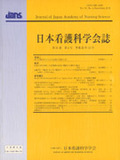Japanese
English
- 販売していません
- Abstract 文献概要
- 参考文献 Reference
要旨
目的:本研究の目的は,新自由主義を基本とする医療政策がとられてきた1982年から現在までを対象とし,自立に関する議論を踏まえて,医療政策において目指される「自立した患者」の内包する課題を明らかにすることである.
方法:1982年から2010年までの医療政策に関する文献を第一次資料,第二次資料として選択し,自立した患者を,政治,経済,歴史社会的な重層構造の中で把握した文献研究である.
結果:1982年以降の医療政策では,患者の自己責任を前提として情報選択や治療に対して主体的な行動をとる「自立した患者」が目指されている.自立した患者を絶対視することは,自立を達成できない患者を,保護や支援の対象から排除しかねない.また,医療を受ける患者と十分な医療を受けられない患者の医療格差を拡大した.
結論:自立は人間の成長や尊厳において不可欠であるが,一方で人間の生活を破壊しかねない側面がある.自立した患者を用いる場合には,患者同士あるいは患者と医療者との依存関係を考慮し,生存権を基礎とした自立が目指されるべきである.
Abstract
Objectives:The purpose of this study is to examine health care policy in Japan from the adoption of neoliberal principles in 1982 until now. I clarified tasks involved in “independent patients” aspired in neoliberal health care policy on the basis of the debate over independence.
Methods:I selected literature on medical policy published from 1982 to 2010 as primary and secondary sources, and conducted literature research regarding “independent patients” in the multi-layered structure of politics, economy, and society.
Results:Japan's health care policy since 1982 aims for inducing patients to be indepedent, that is, the creation of independent patients who can make their choices on information gathering and medical treatment by their own responsibility. Yet, it is dangerous to place absolute trust in the policy of independence because it would exclude patients who cannot be independent from objects of protection and support. This policy change also widened inequalities in access to health care.
Conclusions:Independence is a double-edged sword. It is indispensable for making patients mature and dignified. It may, however, destroy human life. The policy of independence in health care policy must care about dependency relationship among patients and between patients and medical staffs and seek the establishment of independence based on the right to life.
Copyright © 2011, Japan Academy of Nursing Science. All rights reserved.


